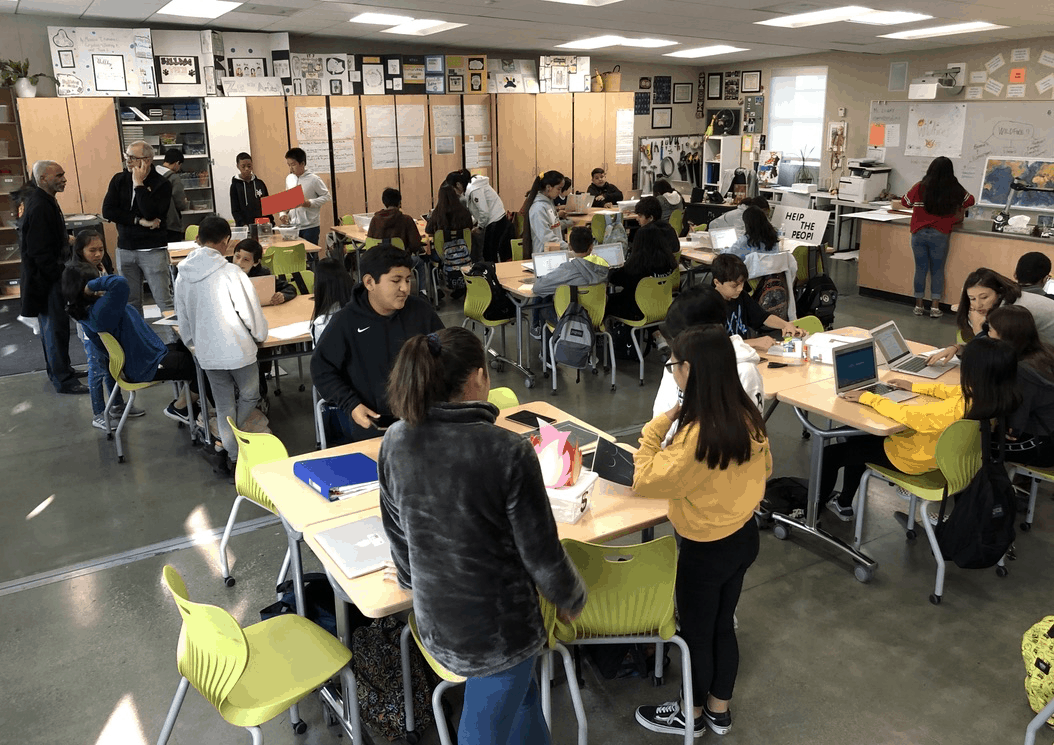
Image Source: Google
Peer groups play a crucial role in the social and emotional development of adolescents, especially during the formative years of middle school. These groups provide a sense of belonging, support, and validation that can help young individuals navigate the challenges of adolescence. Middle schools are intentional in fostering these peer groups to ensure that students have a healthy social environment that promotes growth and development.
One of the key benefits of peer groups in secondary schools is the opportunity for adolescents to develop their social skills. Interacting with peers allows students to practice important communication, conflict resolution, and empathy skills that are essential for building healthy relationships in the future. Through peer group interactions, students learn how to navigate social dynamics, compromise, and collaborate with others, which are valuable skills that will serve them well throughout their lives.
Peer groups also provide a support system for adolescents during a time of great change and transition. Middle school is a period of significant physical, emotional, and cognitive development, and having a network of peers who understand and empathize with these changes can be incredibly beneficial for students. Peer groups offer a sense of belonging and acceptance that can help adolescents feel secure and valued during a time when they may be experiencing self-doubt and insecurity.
Furthermore, peer groups in middle schools play a crucial role in shaping students' identities and sense of self. Adolescents often look to their peers for validation and feedback, and being part of a supportive peer group can help students develop a positive self-image and build self-confidence. Through interactions with peers, students have the opportunity to explore different aspects of their identity, express themselves authentically, and receive feedback that can help them develop a strong sense of self-awareness.
Additionally, peer groups in middle schools can provide a sense of community and belonging that enhances students' overall well-being. Feeling connected to a peer group can reduce feelings of loneliness and isolation, and provide students with a sense of social support that is essential for mental health. Research has shown that adolescents who have strong peer relationships are more likely to have higher levels of self-esteem, lower levels of anxiety and depression, and better overall mental health.
Middle schools play a crucial role in fostering these positive peer group dynamics by creating opportunities for students to connect with their peers in meaningful ways. Extracurricular activities, group projects, and team-building exercises are just a few examples of how middle schools can facilitate peer interactions and encourage the development of strong peer relationships. By creating a supportive and inclusive school environment, middle schools can help students feel valued, respected, and connected to their peers.
It is important for educators and parents to recognize the power of peer groups in middle schools and to support students in building positive and healthy relationships with their peers. Encouraging students to participate in group activities, fostering open communication and empathy skills, and creating a culture of inclusivity and acceptance are all ways in which adults can help promote the positive development of peer groups in middle schools.
In conclusion, peer groups in middle schools have a powerful impact on the social and emotional development of adolescents. By providing a sense of belonging, support, and validation, peer groups help students develop important social skills, build self-confidence, and navigate the challenges of adolescence. Middle schools play a crucial role in fostering these peer group dynamics by creating opportunities for students to connect with their peers and by promoting a culture of inclusivity and acceptance. By recognizing the importance of peer groups in middle schools and supporting students in building positive relationships with their peers, educators and parents can help ensure that adolescents have the social and emotional support they need to thrive during this critical stage of development.